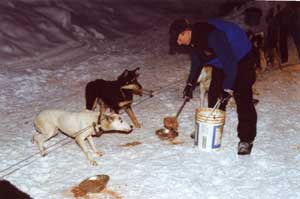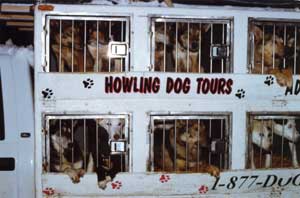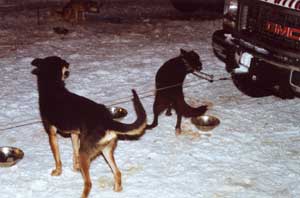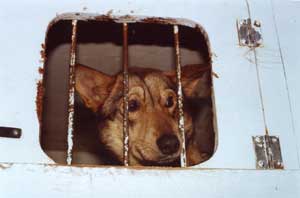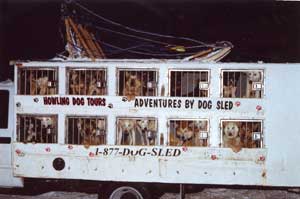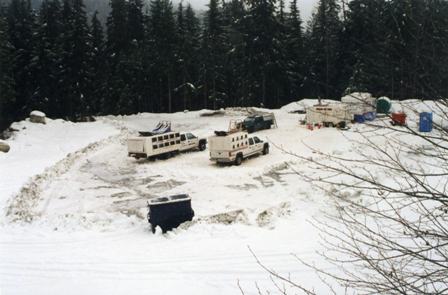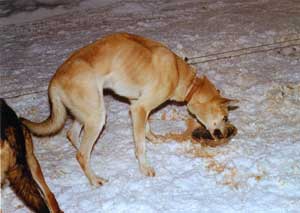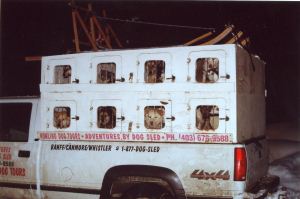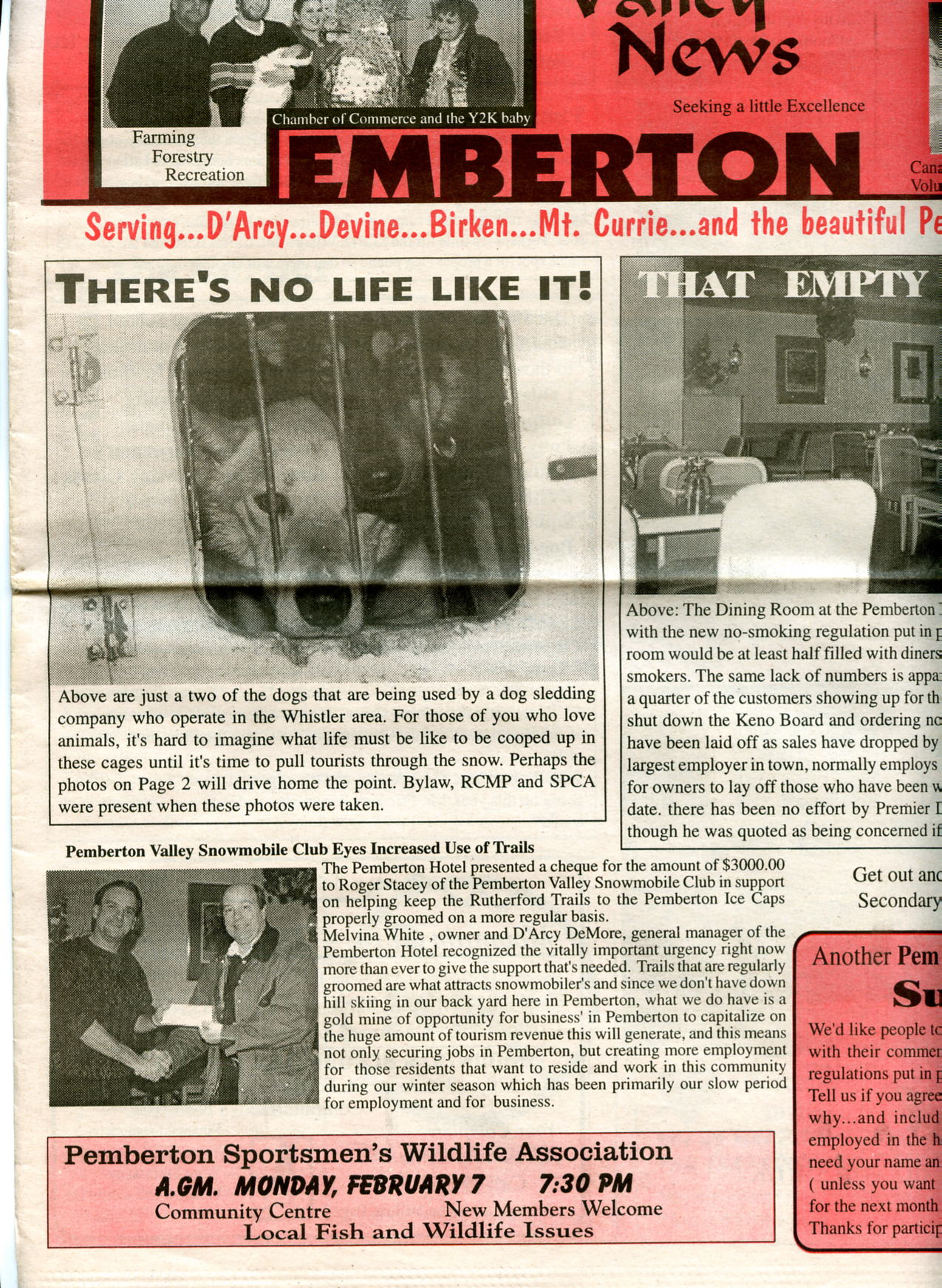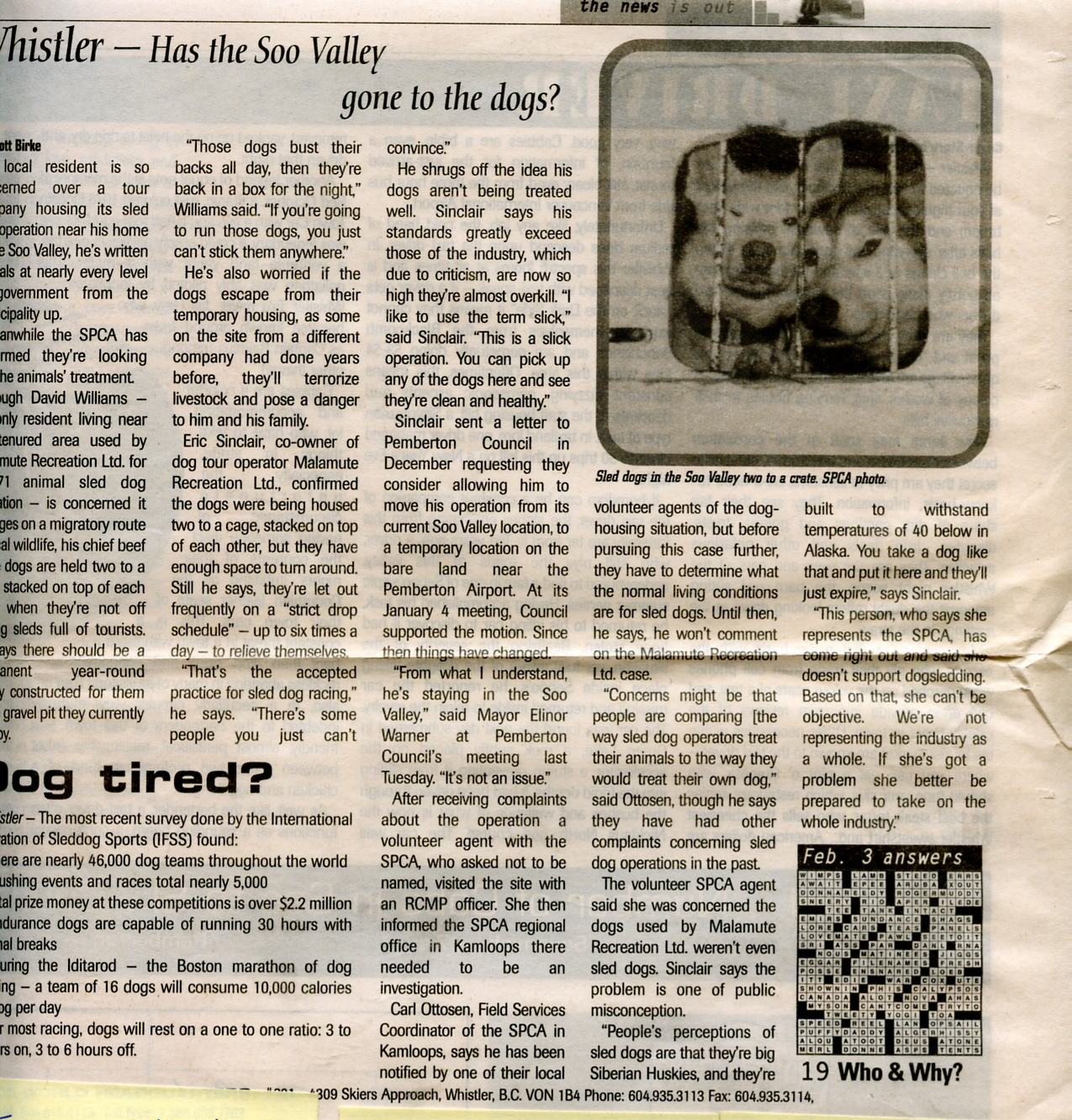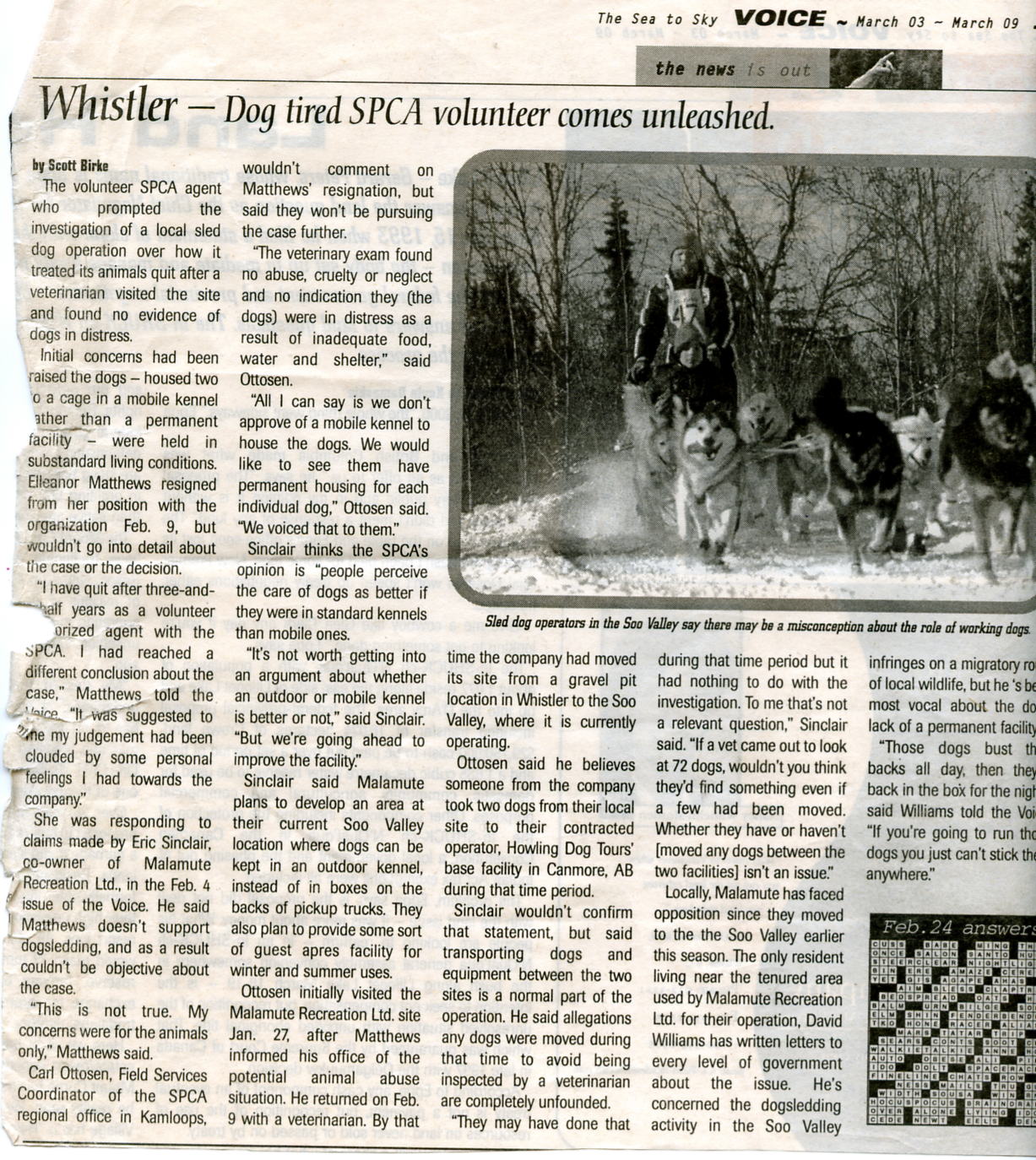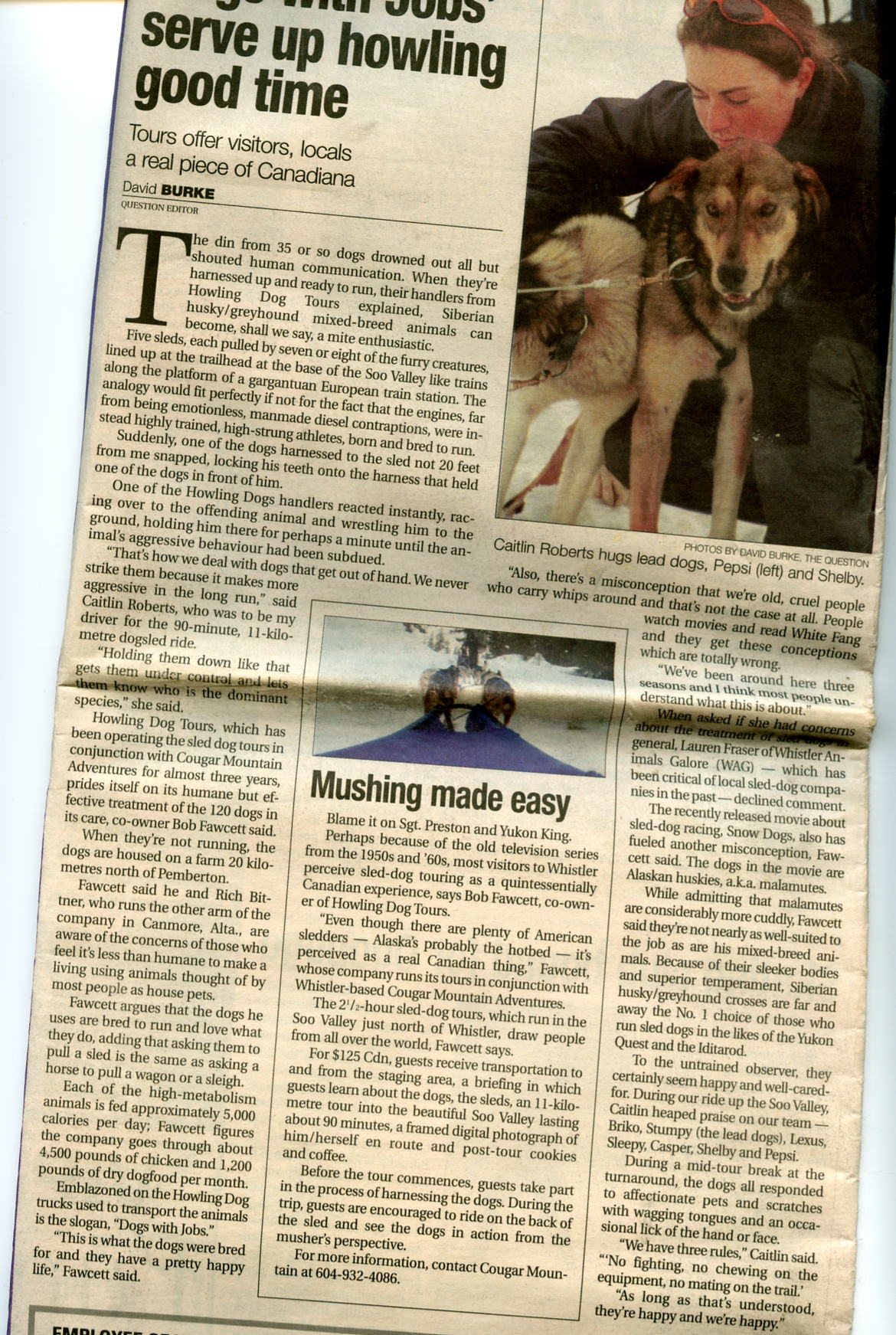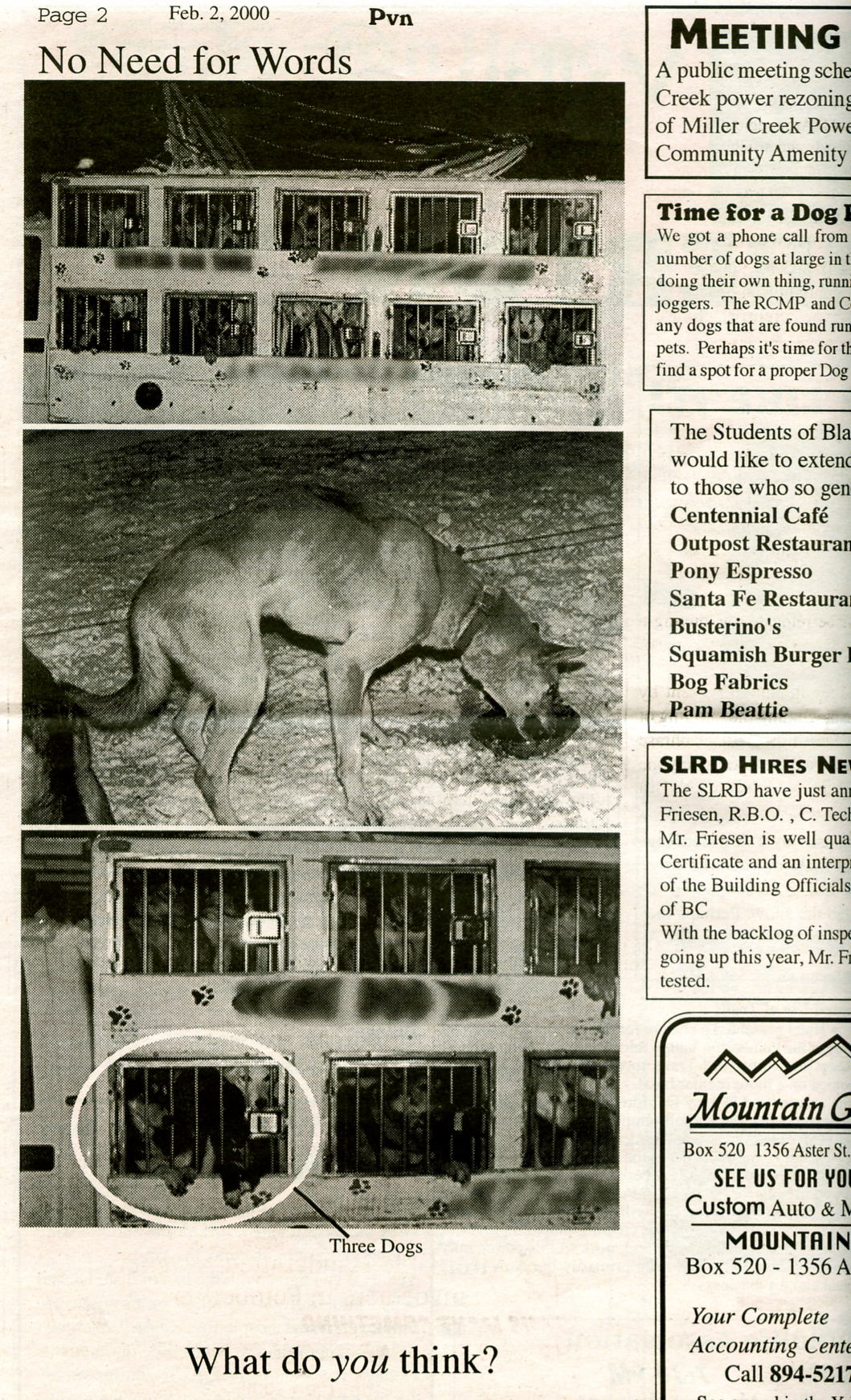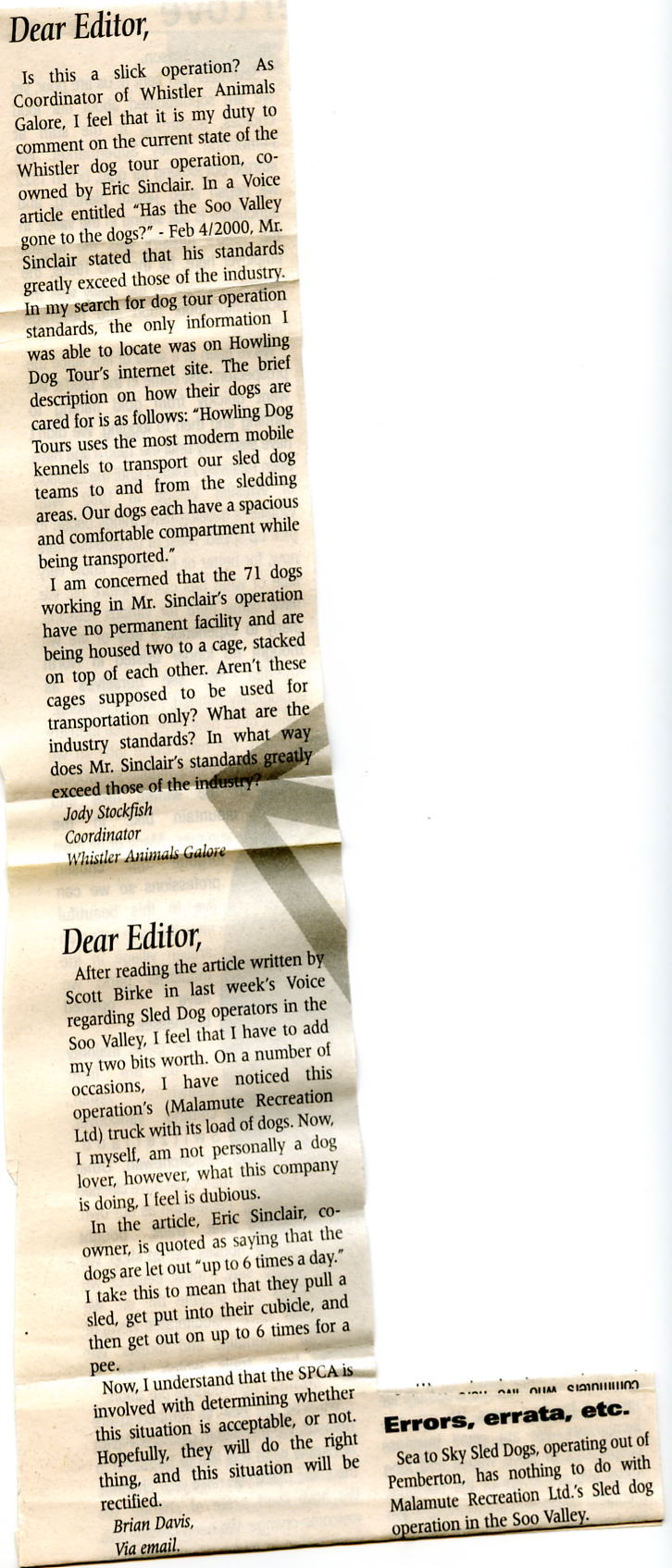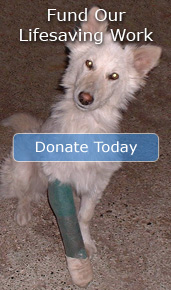The B.C. SPCA is investigating two local dog sled tour operators
following recent complaints from guests that some dogs appeared to
be malnourished.
Eileen Drever, senior animal protection officer with the SPCA, said
she’s dealing with a couple of ongoing investigations in regard to
sled dogs in the Whistler area and the conditions under which
they’re kept. The SPCA has issued orders to operators and failure to
comply could lead to legal action under the provincial Prevention of
Cruelty to Animals Act, she said.
“The SPCA’s not happy with the way these dogs are kept,” Drever
said.
She could not name the companies or provide further details because
of the ongoing investigations.
Though the SPCA has investigated local dog sled tour operators in the past, the current scrutiny is taking place after at least two people who took tours in January contacted the SPCA with concerns about the condition of the dogs and their care.
Palm Springs, Calif. resident Sheree Porter-Thomas said she went on a dog sled tour with her husband when the couple was visiting Whistler in January. She arranged the tour through the Hilton but was later told the tour operator was Blackcomb Snowmobiles.
Porter-Thomas said when the pair arrived for the tour she noticed how thin the dogs looked and the way they cowered away when she tried to pet them.
“They were really afraid,” she said Tuesday (March 24). “They were just cowered back and it just wouldn’t come over to me.”
The dogs did not appear healthy and Porter-Thomas said she could see their ribs and the bones in their heads. The dogs didn’t appear to want to be harnessed to the sled for the tour and they were pulling away, she said.
“They were little skeletons,” Porter-Thomas said. “I’ve never petted a dog’s head and felt only bone.”
Other guests remarked on how thin the dogs appeared and after the tour several were asking the guides about it, she said. They were told it was partly the dogs’ breed, that some of the dogs are finicky eaters, and they stay thin because they run so much.
“They kept giving us these excuses,” Porter-Thomas said.
After returning home to Palm Springs, she wrote a letter about her experience to a Whitehorse-based organization called Sled Dog Watchdog and PETA. She then sent the letter to Whistler’s mayor and council and eventually got in touch with Drever at the SPCA, Porter Thomas said.
Vancouver resident Tanya Vignal also sent letters to the mayor and council and the SPCA after a similar experience in January. She said she felt “guilty” and “sick” after taking a dog sled tour with Blackcomb Snowmobiles and seeing dogs that looked malnourished and unwell.
One of the dogs had diarrhea while it was pulling the sled, and the dogs weren’t provided with water to drink after the exertion of the tour, Vignal said.
“The dogs don’t have a voice and I feel really bad,” she said. “Whistler is such a dog-friendly community.”
Blackcomb Snowmobiles President Shawn Wilson said he’s “hurt” that a couple of guests have concerns about how the sled dogs are being treated. Of all the local kennels the one his contractor runs is at the “top of the list” for care of the dogs, he said, and these are the only complaints he’s heard of all season. The dogs are approachable, mellow and “super fit,” he said.
“We’re super happy with our dogs,” Wilson said.
Tanner Moody is the contractor Blackcomb Snowmobiles hired this winter to provide sled dogs and do the tours. Moody, who has been in the dog sled business for about 10 years in the Whistler area and in Banff, said his “temporary” kennel is located in Mount Currie. He has 48 dogs — a small number compared with other local operators.
The dogs are kept in individual pens, not on chains, and most have insulated houses for the cold weather, Moody said. They’re fed premium, high-protein dog food and meat, and they’re seen regularly by local vet Dr. David Lane, who has given them a clean bill of health, Moody said.
A message for Dr. Lane was not returned by The Question’s press deadline.
“They’re getting food put in front of them probably about five times a day,” Moody said. They’re also given water regularly and the vet hasn’t reported any problems with dehydration, he said.
Some of the dogs dropped some weight during a cold snap in January, he said. The dogs can also appear thin because they’re a husky/hound cross and they burn up to 6,000 calories a day, he said. He compared them to marathon runners.
“A lot of them, yeah, they are lean but they’re right around the decent weight,” Moody said.
Moody said he’s complying with the SPCA’s orders to have the dogs’ teeth checked, to increase their food amounts and to put them on a more effective de-worming program.
Wilson said Moody is working with SPCA officers and is open to their site visits and follow up. Wilson also invited the mayor and council to take a tour and see the dogs first hand.
Staff at WAG, Whistler’s animal shelter, and the municipality’s bylaw office didn’t know how many complaints have been received recently about local dogsledding operations. Kristi Broadbent, Whistler’s animal control officer, said because the various operators’ kennels are located in the Pemberton area and the Callaghan Valley, they’re under the jurisdiction of the Squamish-Lillooet Regional District. She said any complaints coming through the municipality are being referred to the SPCA.
“They (the operators) are providing a Whistler experience so we definitely want to make sure there’s no ill treatment of animals,” she said.



